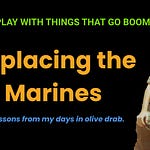Returning to Hawk Hill
My time at the 91st Evacuation Hospital was over, and it was time to return home — home being the aid station at the 3/82 Artillery unit on Hawk Hill. As much as I enjoyed learning new skills and procedures at the 91st Evacuation Hospital, there was something comforting about returning to the familiar routines and camaraderie of Hawk Hill.
It didn’t take long to settle back into the rhythm of daily life.
Then, one day, an officer in our battalion decided to organize a MEDCAP operation. I wasn’t sure if he genuinely wanted to do something good for the Vietnamese people or if he was simply trying to earn brownie points for his career advancement. Whatever his reason, he asked for volunteers to go on a MEDCAP mission. The doctor and a couple of us medics, myself included, agreed to go.
Just what was MEDCAP?
MEDCAP stood for the Medical Civic Action Program, a mission where we provided medical assistance to South Vietnamese civilians. As part of this initiative, a group of medical personnel would visit rural villages to treat illnesses and injuries.
During the Vietnam War, MEDCAP was a vital part of the Army's efforts to win the "hearts and minds" of the Vietnamese people by addressing their healthcare needs. Many rural Vietnamese communities lacked access to basic healthcare, making the MEDCAP program a crucial lifeline for treating illnesses and injuries that would otherwise go untreated.
My goal, however, was simpler: to help people who needed it.
We were sent to a small farming village far from any military bases I was familiar with. I took that as a good sign, hoping it meant the area was safe. The villagers seemed genuinely glad to see us. They lined up, waiting patiently for their turn to be treated.
There were wounds of various types. Most were minor cuts and infections that we medics could handle, but some villagers required more intensive care, which kept the doctor busy.
The MEDCAP program may have been just a small effort in the grand scheme of things, but I thought it was incredibly positive, and I have to admit, it felt good to help.
And then, without warning, everything changed.
We worked for several hours, attending to all who sought care. As we were wrapping up and gathering our gear to leave, an explosion shattered the relative calm of the day.
Everyone in the village froze.
We didn’t know if we were being attacked or what.
We saw smoke rising from a field, and people began screaming and running. Some farmers had set off a land mine, and several were lying on the ground. Villagers rushed out to bring their wounded friends back to us.
The doctor quickly assessed each of them, prioritizing who needed immediate care. He began working on the most seriously injured villager while the rest of us started on those who could wait.
The Belly Wound
I was assigned to a man who appeared stable and was lower on the priority list. The doctor instructed me to get him bandaged and assured me he’d work on him once the others were taken care of.
At first glance, the farmer’s wound seemed minor. There was a small opening in his abdomen, with only a tiny bit of intestine protruding—barely an eighth of an inch.
But as I began to work on him, the situation changed rapidly. The pressure inside his abdomen caused several feet of intestine to slowly push through the wound, unraveling and coiling around itself like one of those snake fireworks I used to watch as a kid.
It was mesmerizing, but it was also a harsh reminder of how fragile and unpredictable battlefield injuries could be. The intestines formed a large, circular mound atop his belly, and I knew I had to act quickly to protect the exposed organs and prevent further damage or contamination.
I called out to the doctor, and when he saw the extent of the injury, my patient immediately became the top priority. Fortunately, the doctor managed to stabilize him and prepare him for a medevac flight to the hospital.
Later, I learned that the man survived surgery, though he ended up needing a colostomy—a procedure in which a part of the large intestine is brought through an opening in the abdominal wall to create a stoma, allowing waste to exit into a detachable pouch.
I was relieved we had been there that day. Without our MEDCAP mission, that farmer would have died. It was a stark reminder that even in war, our efforts could make a profound difference in someone's life.
Lessons From My Days in Olive Drab
There are a couple of lessons I learned during this period.
Even in difficult times, and a war qualifies as a “difficult time” for soldiers and civilians, look for opportunities to help other people. Compassion can shine even in the darkest of moments, and sometimes, it's those moments of kindness that make the biggest impact.
Know that God is in charge. We hadn’t planned on saving anyone’s life that day, but because we were there at that time, a farmer was able to live. It was a powerful reminder that often, we’re placed exactly where we need to be, even when we don't understand why.










